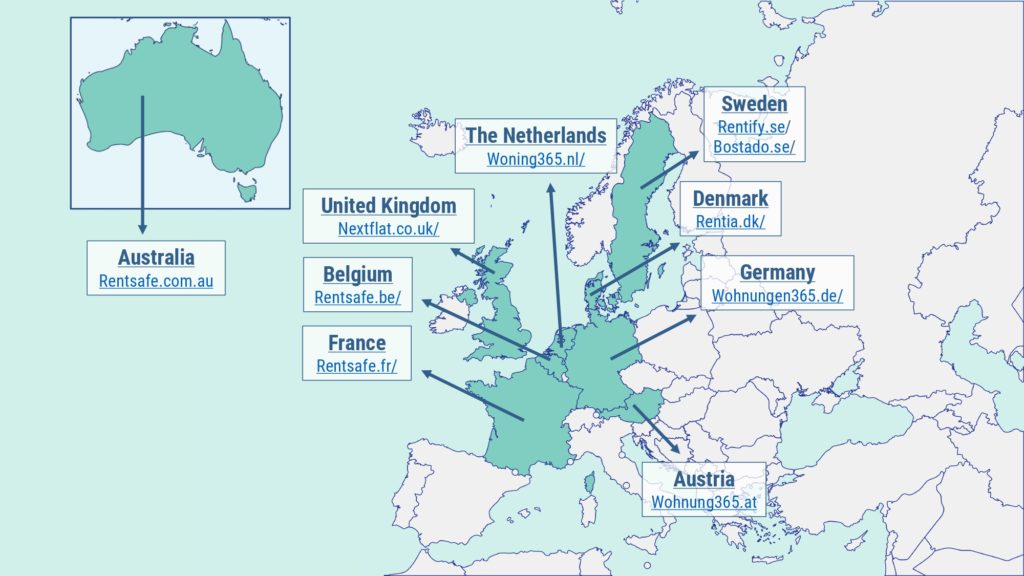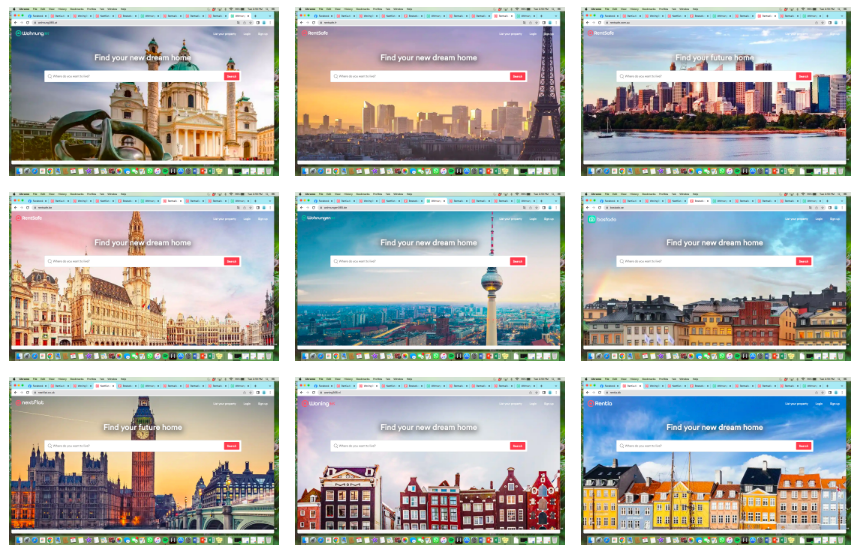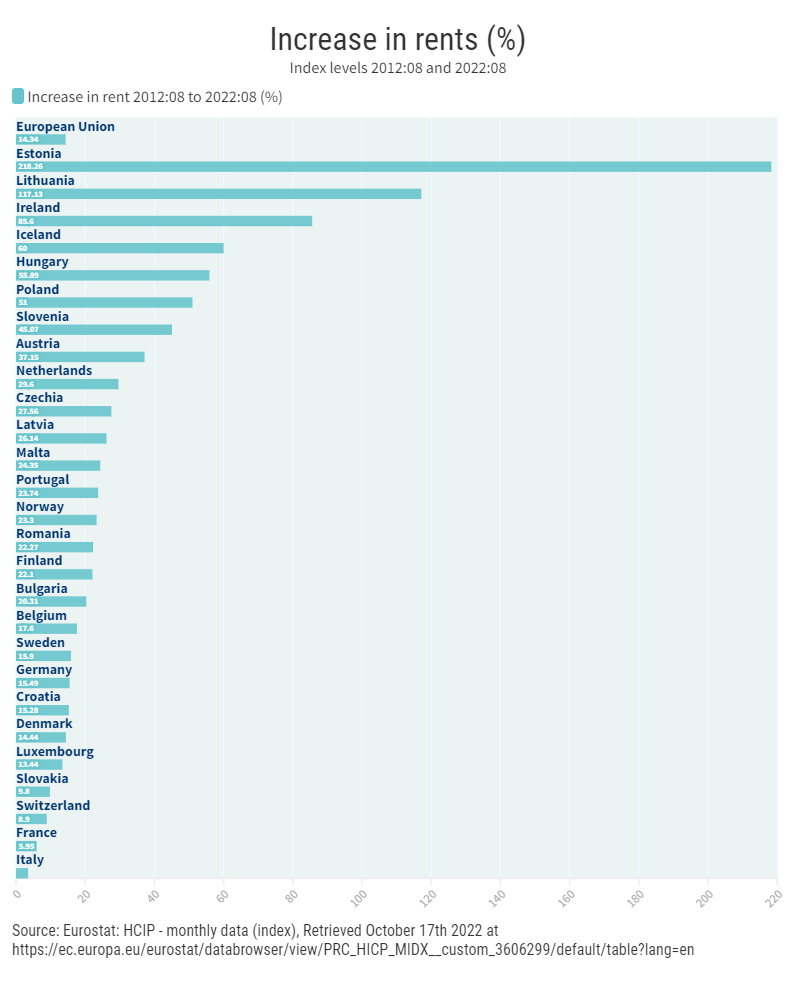American and Swedish companies linked to an international housing scamming business in nine countries
By: Alva Rosengren, Fabio Cantile, Greta Hirschberg, Yuliia Kyzyk.
“After I found out about the 148 euros that were taken out of my card, I was writing emails to them, calling them, etc. The phone number was not real and nobody replied to my messages”. Anna is only one of the hundreds who were scammed by Global Digital Ventures LLC (GDV) while trying to find accommodation. After finding the rental housing website woning365.nl, first-year university student Anna booked a showing for one of the apartments. She was then asked to verify her account by paying one euro. Three months later, she found that Woning365 was taking forty-nine euros out of her bank account every month. She demanded her money back but never got an answer.
GDV, based in New Mexico, USA, operates fake apartment rental websites that use the same scamming method in Sweden, Denmark, Belgium, the Netherlands, Germany, France, UK, Austria and Australia.

After making the initial one euro payment, forty-nine euros are taken out of the victim’s account every month. However, this information is not transparent as it is only expressed in the terms of agreement of the website. According to the EU’s Consumer Rights Directive, the consumers’ express consent is necessary for any additional costs. Customers who contact the company demanding a refund are ignored, forcing them to cancel their bank card to stop the payments.
Once the account is verified, the user selects an accommodation which leads to a legitimate apartment rental website. For example, the accommodations displayed on rentify.se and bostado.se, GDV’s’ Swedish websites, are taken from two rental agencies that explicitly told us they don’t have any partnership with this business.
GDV is represented by the company New Mexico Registered Agents Inc. and has an appointed agent named Riley Park. The New Mexico Registered Agents Inc. refused to give any information on GDV and to put us in contact with Park.

The home screens of the different rental websites owned by GDV
The terms of agreements on rentify.se and bostado.se state that the payments are administered by Scale Media AB. The organisation number is linked to a company called Netopa Group AB, whose CEO is a Swedish citizen called Emil Bergerheim. Both his name and his company are also registered as owners of the Austrian domain wohnung365.at. Furthermore the company runs bostadstrygg.se, which conducts the same type of scamming, without mentioning GDV. We have also been led to believe that the other websites are linked to Sweden, as most of them state that their official language is English, Swedish, Norwegian and Danish. In addition, the payments to the Danish and Dutch websites lead to a bank account in Stockholm.
Since 2020, the website rentify.se has been reported fifty-four times to the Swedish Consumer Agency. In addition there are fourteen reports about bostadstrygg.se, three others reports targeting Scale Media AB and two final reports about GDV. The reasons for the reports vary from unfair contract terms, misleading price information and misleading marketing. Despite the collective seventy-three reports, these fraudulent businesses are still able to continue operating in defiance of the Swedish Price Information Law requirements to clearly and correctly state prices.
We reached out to Bergerheim as well as Scale Media AB for a comment but our calls went unanswered. After identifying ourselves as journalists through text, Bergerheim’s phone number became unreachable.
Scammers are thriving in a housing market crisis in Western Europe that has been lasting for decades and deteriorates as years go by. Their victims fall into their traps by becoming less cautious in the desperate search for any viable way to find an accommodation, relying on any spark of hope that could lead to a unique opportunity in a saturated and expensive market that has no space for them. For this reason, many victims are among those who have less means, connections, and rights: foreigners and students. The organisation European Housing Against Racism, found in 2017 that 77% of immigrants have difficulties finding a home in several European countries. Most of the scamming does not happen locally; often, criminal organisations and individuals operate online from abroad to cast a big net in many countries and cities, using similar ads or structures barely adapted to match the local market of interest. Usual scamming tactics include renting out an apartment that does not exist or that it is not available, using fake profiles.

The issue with the housing market in Europe is complex and it has only gotten worse in the last decade. The crisis in the Middle East and the Russian invasion in Ukraine are steadily raising the numbers of immigrants in Europe, overloading an already saturated market. The desperate need for housing creates a fertile territory for scammers and politicians are yet to address the issue of frauds in the housing market. Nonetheless, a survey we conducted in Sweden showed that out of all the respondents who think that they had been approached by scammers, 7% were successfully scammed but none reported it to the police. Housing scammers are the byproduct of a housing system that fails its people, an issue that continues to grow as a consequence of insufficient policies on the rental housing market, deficiency of police investigations and lack of victims’ reports.
